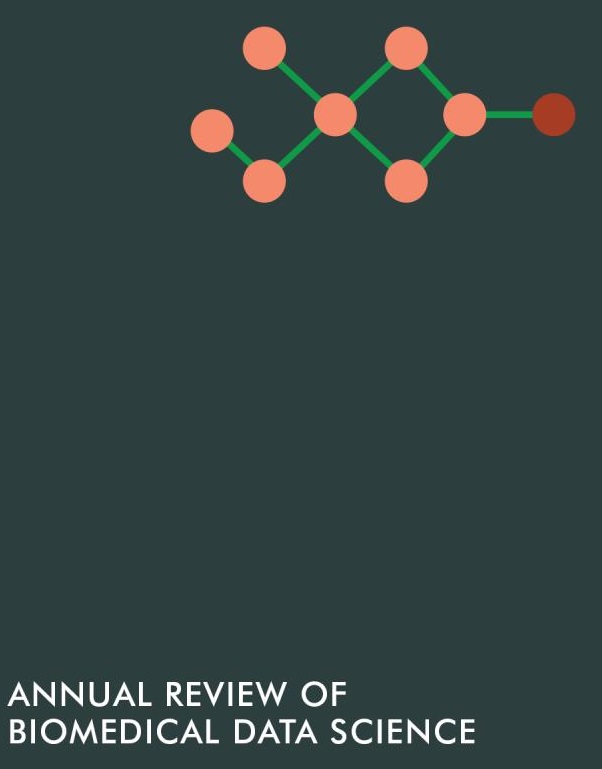Science as a Culinary Art: How Data Science and Informatics Will Change Knowledge Discovery for Everyone
IF 7
Q1 MATHEMATICAL & COMPUTATIONAL BIOLOGY
Annual Review of Biomedical Data Science
Pub Date : 2018-07-20
DOI:10.1146/ANNUREV-BD-01-041718-100011
引用次数: 0
Abstract
There are 7.6 billion scientists on this planet. Every one of us uses the scientific method in our daily lives. We are continually forming new hypotheses—the fastest route for the morning commute, the best strategy for keeping an orchid healthy, or the appropriate cooking time for a bone-in ribeye. We then test these hypotheses against our observations, reevaluate and adjust our views, and then do it all over again. Granted, these are not the rigorous randomized experiments used by research laboratories, but not all knowledge comes from controlled studies. The example of cooking is especially interesting, as I personally think culinary science to be humanity’s most advanced. For 1.9 million years (1), nearly every human has come up with new ideas about how to prepare food. Today alone, billions will form hypotheses about the right combination of spices, temperatures,andwinepairings.Eachofthesehypotheseswillbetested,evaluatedfortheirsuccess, and accepted or rejected, ultimately contributing to the body of human culinary knowledge. Imaginehowadvancedmedicinewouldbeifeveryhumanwasequippedtoformandtestbiomedical research hypotheses the way that we do for cooking! Not only would the mass of knowledge be greater, but it would arguably be more useful as well. The knowledge generated would naturally be contextual—in other words, knowledge specific to particular regions or subpopulations would emerge. Medicine as a scientific discipline will especially benefit from contextual knowledge. The needs and risks of those living in, say, sub-Saharan Africa are much different than those of Inuits living near the Arctic Circle. The push toward precision medicine is evidence that contextual knowledge is recognized as necessary to advance human health. Contextual knowledge made possible by newly available data,科学作为烹饪艺术:数据科学和信息学将如何改变每个人的知识发现
这个星球上有76亿科学家。我们每个人在日常生活中都使用科学的方法。我们不断形成新的假设——早上通勤的最快路线,保持兰花健康的最佳策略,或者里贝耶骨头的合适烹饪时间。然后,我们将这些假设与我们的观察结果进行比较,重新评估和调整我们的观点,然后重新进行。诚然,这些并不是研究实验室使用的严格的随机实验,但并非所有知识都来自对照研究。烹饪的例子特别有趣,因为我个人认为烹饪科学是人类最先进的。190万年来,几乎每个人都对如何准备食物有了新的想法。仅在今天,数十亿人就会形成关于香料、温度和葡萄酒搭配的正确组合的假设。这些假设中的每一个都会被测试、评估其成功与否,并被接受或拒绝,最终为人类烹饪知识的积累做出贡献。想象一下,每一个人都能像烹饪一样,对生物医学研究假设进行测试,这将是多么先进的医学!不仅知识的质量会更大,而且可以说它也会更有用。所产生的知识自然是有上下文的——换句话说,特定区域或亚群体的知识会出现。医学作为一门科学学科,将特别受益于背景知识。生活在撒哈拉以南非洲的人们的需求和风险与生活在北极圈附近的因纽特人的需求和危险大不相同。精准医学的发展证明,背景知识被认为是促进人类健康所必需的。通过新的可用数据使上下文知识成为可能,
本文章由计算机程序翻译,如有差异,请以英文原文为准。
求助全文
约1分钟内获得全文
求助全文
来源期刊
CiteScore
11.10
自引率
1.70%
发文量
0
期刊介绍:
The Annual Review of Biomedical Data Science provides comprehensive expert reviews in biomedical data science, focusing on advanced methods to store, retrieve, analyze, and organize biomedical data and knowledge. The scope of the journal encompasses informatics, computational, artificial intelligence (AI), and statistical approaches to biomedical data, including the sub-fields of bioinformatics, computational biology, biomedical informatics, clinical and clinical research informatics, biostatistics, and imaging informatics. The mission of the journal is to identify both emerging and established areas of biomedical data science, and the leaders in these fields.

 求助内容:
求助内容: 应助结果提醒方式:
应助结果提醒方式:


